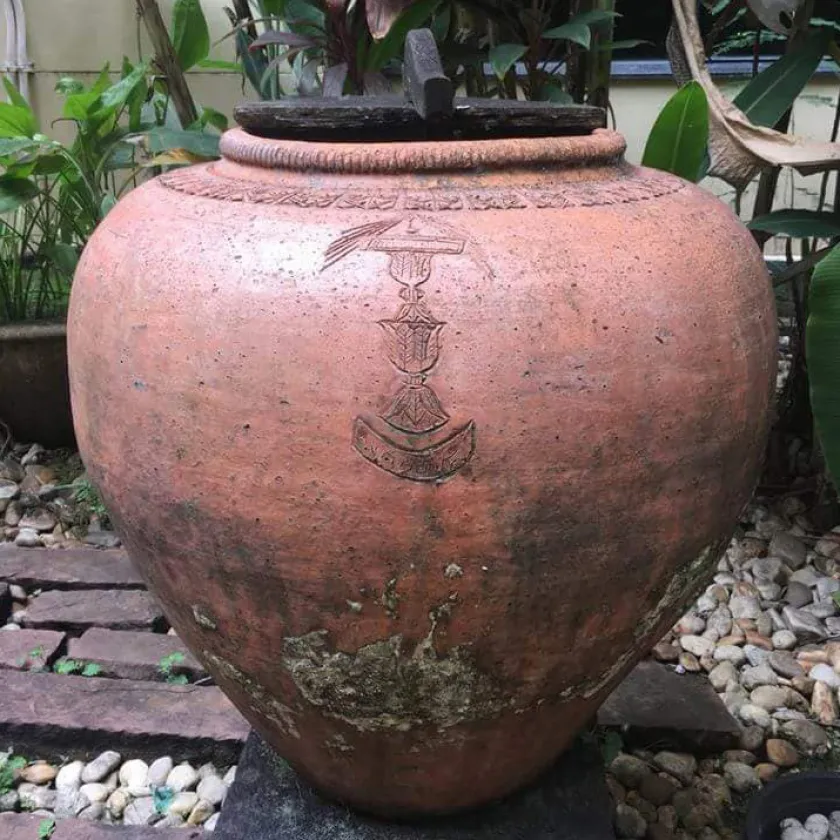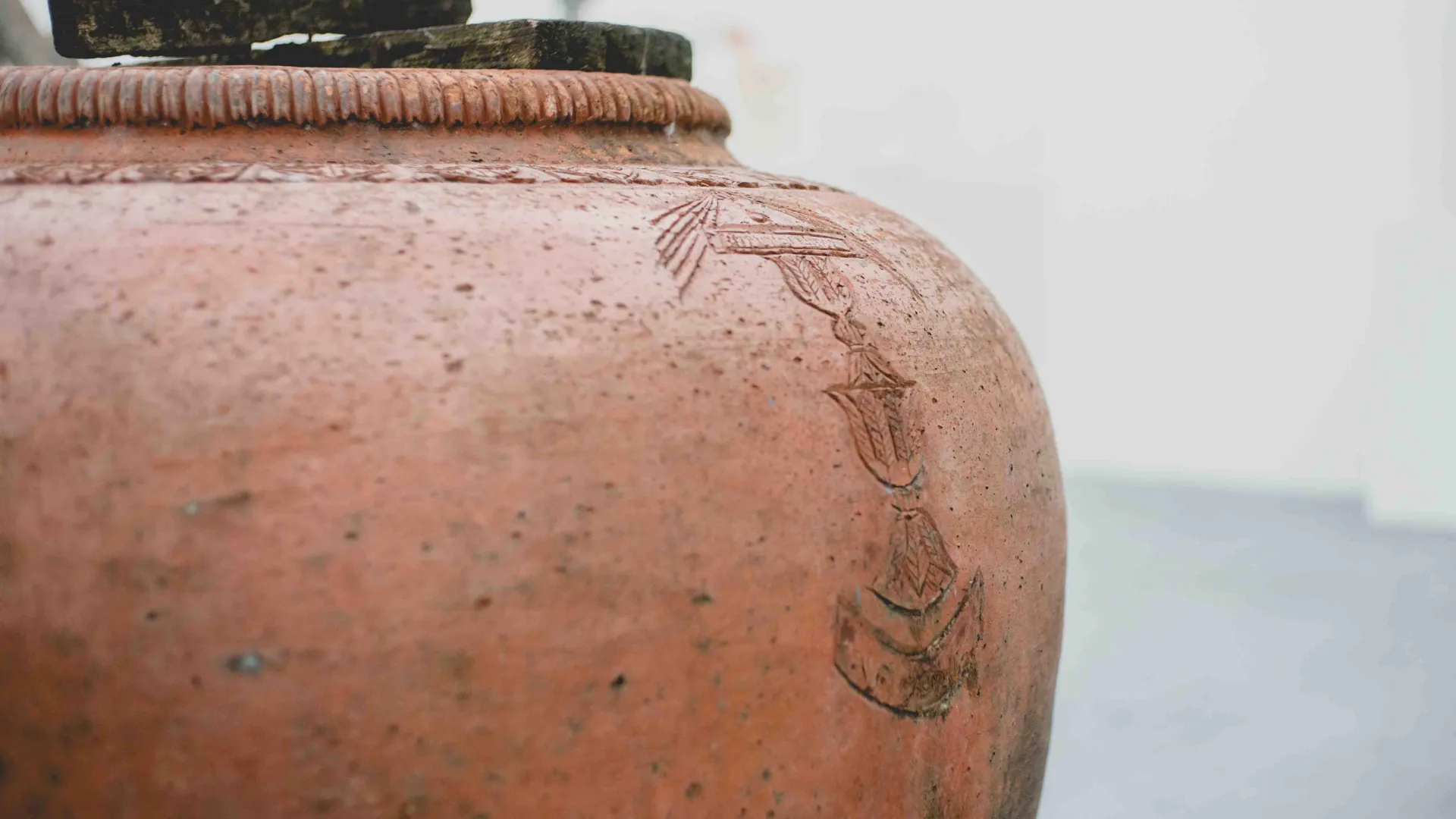The "Constitution Pedestal" was an important symbol used by the People's Party to raise democratic consciousness among the people after the 1932 Revolution. It appears not only on important national monuments (Democracy Monument on Ratchadamnoen Avenue, Constitutional Defender Monument in Bang Khen, and Constitution Monuments in many provinces in the Northeast), but also in architectural motifs and everyday objects not produced by the state. This reflects the "awakening" of individuals and ordinary people to the change in government, as well as alluding to the celebration of the arrival of democracy through the production of objects for daily use, such as the creation of this earthenware jar for storing water.
While the exact origin of this jar is unknown, based on its style, it is believed to have been made by ordinary local artisans. The jar is made of earthenware and measures 80 centimeters high and 70 centimeters wide. On the upper rim is a motif of the "Constitution Pedestal" and the symbol of the sun above it, which can be interpreted as meaning that the change in government brought about by this constitution is the end of the dark ages and the beginning of a new era of light. On the lower part of the jar is the inscription "B.E. 2478" (1935), which is likely the year the piece was made. Professor Dr. Charnvit Kasetsiri, former Rector of Thammasat University, received the jar from its original owner before passing it on to the Thammasat University collection. The jar is currently housed in the Pridi Banomyong Library at Thammasat University, Tha Prachan campus.
The existence of this jar, along with other household items featuring the "Constitution Pedestal" motif, serves as a testament to the public's awareness of the country's shift towards a democratic system of government. This counters the claims of conservative or monarchist groups who allege that the People's Party "seized power prematurely" without the readiness or understanding of the populace regarding the new regime. It also challenges the prejudiced and mocking perspective that portrays most ordinary citizens as believing that the "Constitution" was the son of Phraya Phahonphonphayuhasena. Regardless of how the ordinary citizen producers interpreted the "Constitution Pedestal" motif on their household items, whether as a fleeting trend of the times or a genuine understanding of the value of democracy, the fact that they created these objects for daily use reflects the awareness of Thai citizens about the existence of the Constitution, which is not, as some have accused, the name of Phraya Phahon's son.


